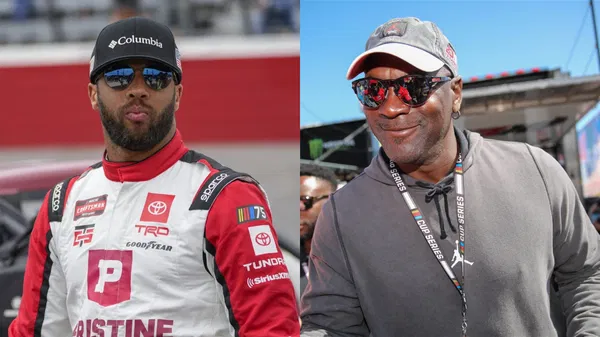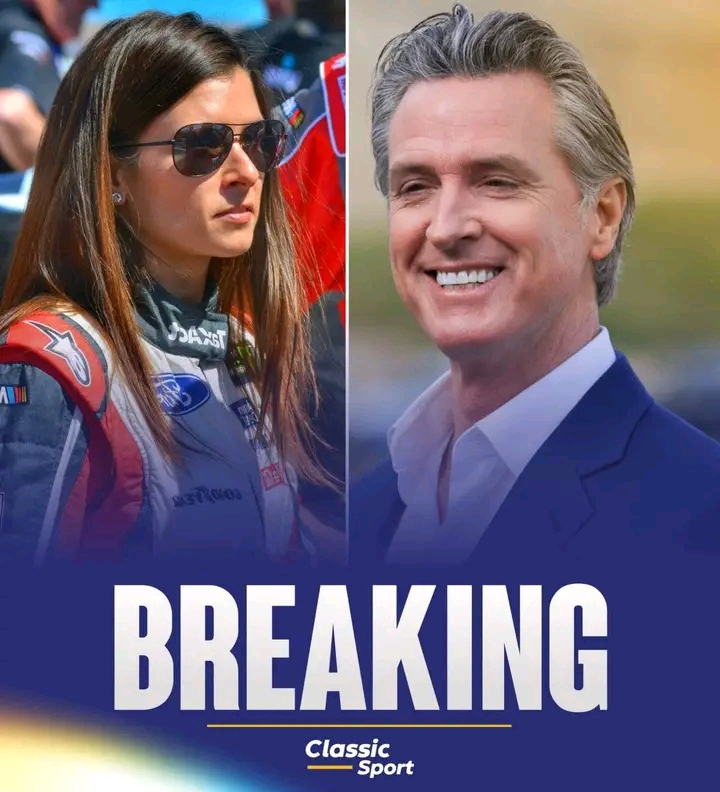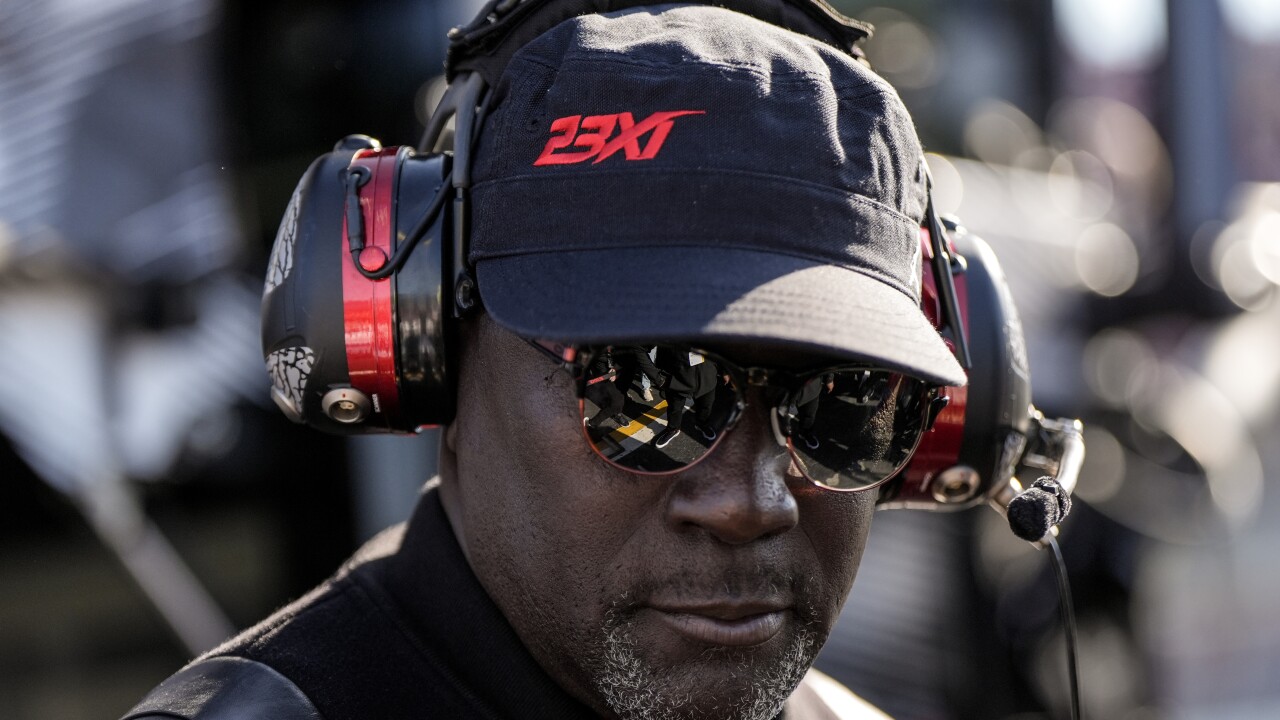In the world of NASCAR, racing talent has long been regarded as the primary driver of success, but recent developments suggest that priorities may be shifting. This change became glaringly apparent when basketball legend Michael Jordan, now a team owner in the NASCAR arena, appeared to prioritize sponsorship money over nurturing pure racing talent. This move has ignited widespread debate and raised an important question: Has the sport become more about money and business, leaving talent to take a backseat?
When Michael Jordan first announced his venture into NASCAR with the creation of 23XI Racing, it was a groundbreaking move that sent shockwaves through both the sports world and racing community. Jordan’s legendary status as one of the greatest athletes in basketball, combined with his competitive drive, left many fans and analysts expecting nothing less than a winning team. His partnership with Denny Hamlin, an experienced and successful NASCAR driver, only heightened these expectations. They chose Bubba Wallace as their lead driver, a decision that made headlines due to Wallace’s growing reputation and his role as the sport’s only full-time African American driver. At the outset, it seemed that 23XI Racing was primed to be a force on the track, a team built on skill and determination.
However, as the team developed, a subtle but noticeable shift in priorities became clear. More and more, the focus seemed to move away from the pursuit of raw talent and toward securing high-profile sponsorship deals. This shift was not lost on NASCAR fans, many of whom have followed the sport for decades and understand the delicate balance between business and racing prowess. NASCAR has always been a sport where money matters, with big-name sponsors playing a vital role in keeping teams competitive. From logos plastered on cars to sponsorship mentions at every opportunity, NASCAR’s reliance on corporate backing is no secret.
But Michael Jordan’s approach, or at least the perception of it, has brought new scrutiny to this balance. Critics argue that instead of prioritizing the cultivation of top-tier driving talent, Jordan’s focus seems to have tilted towards leveraging his own name and connections to bring in lucrative sponsorships. These partnerships are, no doubt, beneficial to the financial health of his team. Sponsorship dollars allow for better equipment, more resources, and the ability to stay competitive in a sport where technology and engineering advancements can make or break a season. But at what cost?
For some fans, it feels as though the pure essence of racing—the skills, instincts, and determination that make drivers great—has been overshadowed by business deals and marketing campaigns. Sponsorships are an integral part of NASCAR, but many believe that when they become the primary focus, the integrity of the sport is at risk. This isn’t a new issue in NASCAR, but the involvement of a figure as globally recognized as Michael Jordan has amplified the conversation.
Bubba Wallace, while undoubtedly a talented driver, has had a mixed record on the track. His presence on the team has certainly drawn attention, partly due to his advocacy for social justice and partly because of his unique position in the sport. However, his performance in races has not always matched the hype surrounding his name. For some, this raises concerns that 23XI Racing’s decisions may be driven more by the publicity and financial opportunities that come with Wallace’s visibility than by his racing potential alone.
This has led to broader questions about the future of NASCAR. Is talent still the deciding factor when teams choose their drivers, or is the ability to attract sponsors and generate media attention now a more important metric? It’s a question that extends beyond Michael Jordan and 23XI Racing. In recent years, NASCAR as a whole has been evolving. The sport is trying to appeal to new audiences, expand its fan base, and keep up with changing times. In this process, many believe that corporate interests are gaining too much power, overshadowing the raw talent and competitive spirit that once defined the sport.
That’s not to say that sponsorships should be downplayed. They play an essential role in NASCAR’s ecosystem. But when decisions on who sits behind the wheel are more influenced by the amount of sponsorship money a driver can bring in than by their driving ability, the essence of the sport is at risk of being diluted. Talent and business need to work hand-in-hand, with neither overshadowing the other.
In the end, Michael Jordan’s foray into NASCAR has undeniably brought new attention and excitement to the sport. His involvement has drawn in fans who might not have previously followed racing, and it has opened the door to new opportunities for the sport’s growth. But as the debate over the balance between talent and sponsorship continues, NASCAR must ensure that it doesn’t lose sight of what made it great in the first place: the sheer thrill of watching the best drivers in the world compete at the highest level. Whether talent still reigns supreme in NASCAR, or if the scales have tipped in favor of money, remains to be seen. For now, the debate rages on, with Michael Jordan’s approach standing at the center of this ongoing conversation.
“Michael Jordan Chooses Sponsorship Money Over Racing Skill: Is Talent Losing Its Grip on NASCAR?”




